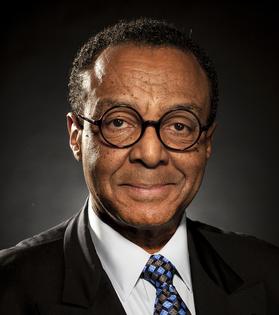Who’s Afraid of Critical Race Theory? Those Who Don’t Know What It Is
Amid rising attacks against a line of academic debate called “critical race theory,” I was surprised to see a Black state lawmaker from Chicago’s West Side, La Shawn Ford, introduce a bill calling for its inclusion in police officer training.
As a practical matter, I’d rather see, for example, more violence de-escalation training to help officers avoid shooting unarmed suspects. Just a thought.
“Critical race theory,” or CRT, has become a trigger term for politicians, activists and media voices, particularly on the right wing where it’s competing with “cancel culture” on the hit parade of things we are all supposed to be angry about or afraid of — or both.
But the political allure of the term is understandable, considering how often it has been appearing in the fevered narratives of conservative media and Red State politicians. Texas, Tennessee, Oklahoma, Idaho, Arkansas and Arizona have either passed or are working on bills that would drop CRT or anything that looks like it from public schools curricula.
That’s a lot of agitation over an esoteric school of thought found mostly in graduate schools and law schools.
CRT has emerged gradually since the 1970s as an academic movement of civil rights scholars and activists to challenge mainstream liberal approaches to racial justice.
Among other pioneers of the CRT movement, legal scholar Kimberlé Crenshaw has called it an evolving practice that questions how race, as a social construct, perpetuates a caste system that relegates people of color to the bottom tiers.
The argument has some merit, but, optimist that I am, I also agree with critics who say that CRT too often elevates storytelling over evidence and reason and devalues the racial progress that Americans have made, despite the challenges that remain.
Unfortunately, that robust academic debate is widely confused and easily exploited in the political world.
The conservative critique was captured well by Kathy Valente, director of operations for the Illinois Family Institute, who wrote in a letter to the Naperville Sun (one of the Chicago Tribune’s suburban publications) after some state lawmakers proposed including critical race theory and The New York Times’ 1619 Project into the state’s teacher training and public school classrooms.
“Critical Race Theory implies that all people who were born with white skin are racist,” she wrote. “And all whites have power because of their skin color and have used that power to hold back people of color. This is patently false. Tax dollars should not be used to foster lies, division and hatred.”
She also decried, as numerous political conservatives do, The New York Times’ 1619 Project, which recounts the nation’s history as beginning in 1619 when the first slaves were brought to our shores, instead of in 1776.
“The truth is that colonists broke free of England’s restrictive monarchy to form an independent republic that recognized our God-given civil liberties,” she wrote.
Yes, except they also withheld the same rights from slaves, women and Native Americans, among others. Those groups were added later after hard-won campaigns, the Civil War and the Constitution’s amendment process.
We lose a lot if we only want to think about the heroic and joyful side of our nation’s history. Former Sen. Rick Santorum, a Pennsylvania Republican and twice-failed candidate for his party’s presidential nomination, recently demonstrated that when he got carried away while speaking to the Standing Up for Faith and Freedom Conference.
“We came here and created a blank slate,” he said. “We birthed a nation from nothing.”
As for those Indigenous folks who were here first, he said, “There isn’t much Native American culture in American culture.”
That’s a broad and stunningly ignorant narrative about Indigenous Americans, who comprise more than 500 federally recognized tribal nations, with their own languages, history, government and religious traditions. He later acknowledged that he misspoke.
But Donald Trump wasn’t misspeaking when, as president, he instructed federal agencies to end racial sensitivity trainings that address topics such as white privilege and CRT, calling the topics “divisive, anti-American propaganda.” President Joe Biden reversed that order.
He and Vice President Kamala Harris later declared in answering a question that has sprung out of the anti-CRT backlash that, no, they don’t believe we live in a “racist nation.”
Neither do I, compared to, say, apartheid-era South Africa and other countries from which I have reported. But if you ask do we have too many racists still around and too much of the legacy of slavery and other systemic racism, I’d give another answer.
That’s just reality. As I’ve often said, race talk is a lot like sex talk: everybody thinks they’re expert at it but we’re reluctant to talk about it in mixed company or in front of children. Real critical race theory is better suited to graduate students than kids. But we don’t do ourselves any favors by hiding good information about this nation’s diversity that can help all of us to better appreciate the “united” in the United States.
========
(E-mail Clarence Page at cpage@chicagotribune.com.)
©2021 Clarence Page. Distributed by Tribune Content Agency, LLC.
(c) 2021 CLARENCE PAGE DISTRIBUTED BY TRIBUNE MEDIA SERVICES, INC.







